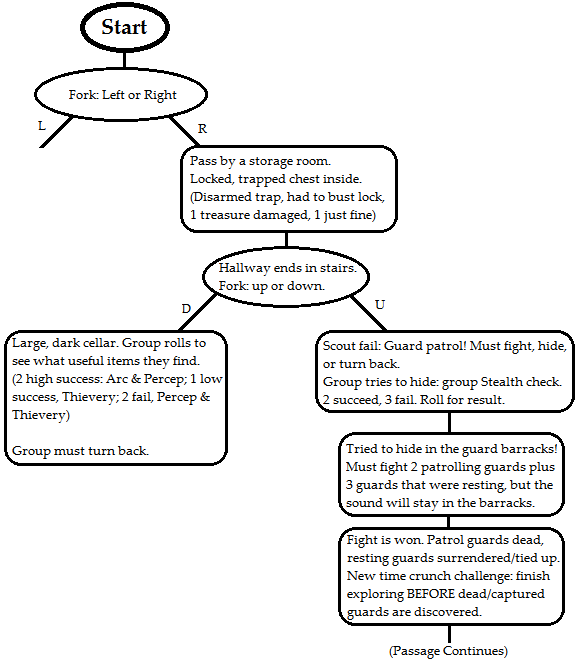Tequila Sunrise
Adventurer
The key to "fail forward" adjudication is being ready to introduce new elements into the fiction - not because the internal causal logic of the gameworld tells you that you should, but because they frame the PC of the player who just failed the check into a new, dynamic situation of adversity.
Thank you both for those explanations! I think from here, it's just a matter of me experimenting with fail-forward, getting feedback from the group, and then refining.The two obvious "relative" strategies are already known to you. The most obvious is the "+/- 5 increment" rule--beat by 5 or more, you get something extra special. Fail by 5 or less, and you get a partial success. Etc. The other is the one I mentioned, which is relative to the die rather than the target number, where most D&D games already implement critical success and many give critical failure as well, but adding additional shades. You can also combine the two. Perhaps 1/2/3 and 18/19/20 are all "special success," with critical success/fail being especially good/bad, while if you are within +/- 1 of the check value, you get a partial success that complicates the situation.
Rules-wise, I'll be using something like the +/-5 rule...except maybe for random combat encounter mini-SCs. I initially thought 'Oh, at-will attack bonus is the natural way to abstract all of a PC's combat abilities into a single check. But then I thought 'Wait, that unduly rewards the 'gotta have a 20 attack stat at 1st level' mentality.' So then I thought 'Well, why not 1d20 + each PC's highest two stats?' And then I was like 'Wait, the whole point of 4e is that everyone is good at combat! Why am I trying to apply specific stats to a combat abstraction?! Players might as well roll unmodified d20s, with the option to spend dailies for extra successes!' But then I thought 'Or I could use the DW 2d6...' And then I was like '...But that would make things inconsistent with the d20 system. Argh!'




